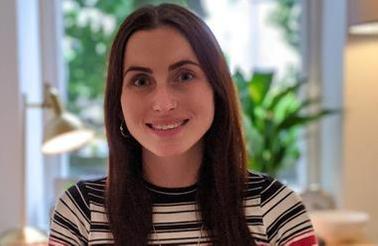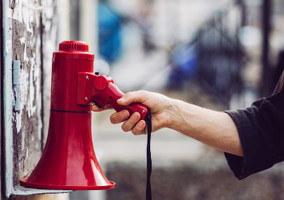How much do you and your staff and volunteers talk about periods?
Perhaps, like me, you work at a gynaecological health charity, and the answer is ‘loads’. But for many, it may be ‘rarely’, or ‘never’. As a sector, we must end that silence.
I work for Endometriosis UK, the country’s largest charity supporting those with a sometimes debilitating disease affecting one in 10 women and those assigned female at birth, although the impact can be life-long.
The latest NCVO Almanac shows that the voluntary sector has a 950,000-strong workforce which is 67% female, and 16.3m volunteers. This equates to tens of thousands of colleagues across the sector with endometriosis, plus hundreds of thousands of volunteers. And the aforementioned silence may be isolating them, and preventing them from fully contributing in their roles.
As a sector whose purpose is to bring forward unheard or ignored voices and provide support and advocate for those in need, it’s incumbent on us to do this internally, as well as externally. This means that endometriosis and menstrual health conditions must have a place in every charity’s diversity, equality and inclusion plans – and what better time to make sure, than during Endometriosis Action Month (March 2022).
Working hard to end the taboo
Endometriosis is where cells similar to those in the lining of the womb grow elsewhere in the body. These cells react in the same way to those in the womb during the menstrual cycle, building up and then breaking down and bleeding, but because this blood cannot escape as a period, it can cause inflammation, pain and formation of scar tissue.
Symptoms of endometriosis include chronic pelvic pain, painful periods, painful bowel movements; pain urinating; pain during or after sex; difficulty getting pregnant; and fatigue. A lack of research into the condition means there is no cure, and treatment options are limited and don’t work for everyone.
It still takes an average of eight years to get a diagnosis of this disease in the UK, a figure which hasn’t changed in a decade. The fact that there is still a taboo around periods, and that society normalises pain which would be deemed worthy of medical attention anywhere else in the body, is part of the reason for lengthy diagnosis. Recent research we conducted on this shows that many experiencing painful periods would put off going to the doctor.
We’re working hard to ensure that the taboo around endometriosis and menstrual health ends. As a society, we cannot just brush off and accept lives being disrupted like this as something normal or “just part of being a woman”.
And of course, the pain of endometriosis doesn’t end once that lengthy diagnosis is finally achieved. This is why we provide a multi-channel support network through trained volunteers, the vast majority of whom live with endometriosis, which was accessed by more than 50,000 individuals last year.
Employer scheme
We also launched our Endometriosis Friendly Employer scheme in 2019, which includes more than 80 organisations of all types and sizes – including charities such as Action for Children, Cardiff Women’s Aid and Highland Third Sector Interface.
Endometriosis Friendly Employers commit to tackling the taboo, and developing a more supportive environment and culture for those with the disease. Polling we did for Endometriosis Action Month shows that most younger women would feel concerned about disclosing menstrual ill health at work. It also flagged that, while Brits have become more open about health with colleagues since the pandemic began, this may not be shared by those with a condition which remains taboo.
What ‘endometriosis-friendly’ means in practice varies from organisation to organisation, but it often includes ensuring that flexible working practices and policies are supportive of rather than penalise those with endometriosis and menstrual health conditions. Volunteering agreements and policies should also be reviewed with the same goals in mind.
Another key element of the Endometriosis Friendly Employer scheme is normalising conversations about menstrual health in the workplace, through staff talks or internal information sharing. Other employers have trained line managers or appointed workplace Endometriosis Champions to increase support and understanding.
With appropriate support from the organisation they work or volunteer for, more and more of those with endometriosis can be given a better chance to fulfil both their potential and the missions of the charities they serve.
Rozie Corbett is head of development at Endometriosis UK. Find out more about its Endometriosis Friendly Employer scheme at endometriosis-uk.org/endometriosis-friendly-employer-scheme
Related articles











